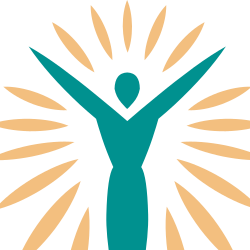INDIVIDUAL RIGHTS
As an individual, you are able to freely pursue interests, activities, relationships, movements, or occupations with limited intervention or stifling from family, educational and cultural institutions, jobs or government.
In the United States, the Declaration of Independence recognizes human beings are endowed with inalienable rights. These include the rights to life (the right to be physically alive), liberty (the opportunity to experience, learn, grow and contribute to others in ways that are meaningful to oneself, and the pursuit of happiness (to explore, identify and do that which brings joy).
As a human being, you also have the right to obtain and access basic human needs, including access to accurate information, education and experiences; transportation and mobility options; adequate and stable housing; clean and breathable air; clean and drinkable water; healthy nutrition and foods; and safety.
Civil Rights laws in the United States guarantee the right for all people to participate in their communities and engage in commerce. Across the globe, the United Nations has codified a series of expansive human rights, and in the United States, Americans also have Constitutional Rights. Some of these include: equality, freedom from discrimination, personal security and safety, freedom from torture and degrading treatment, freedom from slavery, right to a fair trial, right to privacy, freedom of beliefs and religion, and freedom of personal opinions and speech, among others.
It’s important to understand your own human rights, basic needs, civil rights, international human rights, and your constitutional rights. This helps you understand the all of the opportunities available to you to reach your own unique highest and fullest potential, as well as identify and overcome any systemic barriers and obstacles that may exist.
In addition to understanding and asserting your own rights, it’s important to understand your responsibility to respect the rights of others. You have the right to do as you please, so long as it does not purposely cause physical, mental, emotional or spiritual trauma, stress or harm to other human beings or the shared environment.
Signs of Optimal Health & Wellness
Indicators of thriving include:
- A sense of freedom
- Feeling free to express oneself
- Feeling secure in your freedom of speech, freedom of religion, and your ability to participate in gatherings, organizations, communities or jobs of your choice
- Feeling able to move about society freely, easily and safely
- Able to easily meet your basic needs
Warning Signs
Indicators of warning include:
- Feeling of oppression, or having to overcome obstacles and barriers to exercise your freedom
- Experiencing government mandates, policies or laws that inhibit your freedoms or impede on your bodily autonomy
- Difficulty in obtaining basic needs
- Excessive stress and trauma from limits on freedoms
- Limitations on your privacy, time, speech, or religious freedom
- Experiencing discrimination at work or in society
- Depression
- Anxiety
- Feeling stifled
- Feeling of not being able to freely move about in society
SELF EVALUATION
Honoring your own individual rights provides a sense of empowerment for human beings. Even when laws or policies may dictate otherwise, it’s important to find time a space to exercise your rights. When rights are being violated, it’s also important to stand up for them. This is a rejection of oppression, and is important for physical, mental, emotional and spiritual health and wellbeing. Ask yourself: Do I feel happy? Am I able to meet my basic needs with ease? Do I have opportunities to find and experience joy? Do I actively find ways to pursue my own interests?
Meditation, gratitude practice and getting out in nature can sometimes help to clear your mind from any internalized oppression. In addition, finding groups that lift you up or care about your cause can be healing and empowering. Being an active part of your own political system is also important. This means voting and communicating with elected officials at the city, county, state and federal level.
SELF-CARE
- Find healthy ways to explore and exercise your rights
- Learn about your Constitutional and International Human Rights
- Learn how to advocate for your rights
- Learn how to respect and honor the rights of others
- Vote!
- Contact your elected officials
GET SUPPORT
If you have been a victim of discrimination or oppression, or if your rights have been violated in some way, you may benefit from intervention and support.
EMERGENCY
If you have active thoughts or intentions of harming yourself or others:
- Dial 911; or
- Go the nearest hospital emergency room
